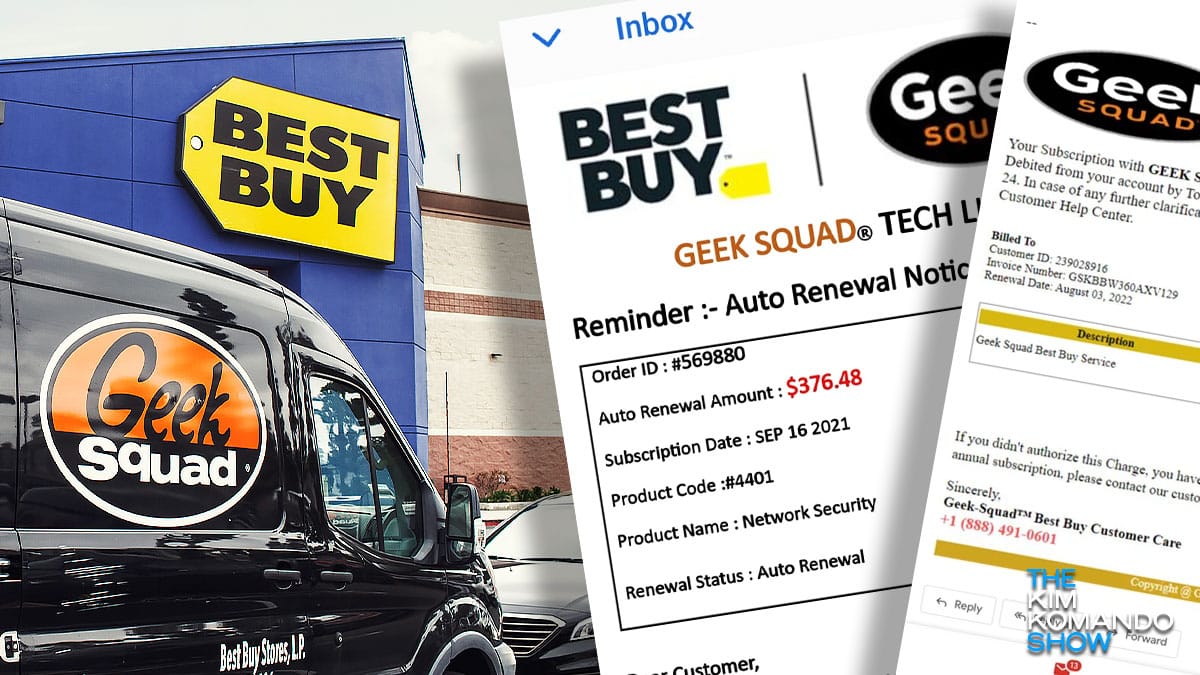Tech help scam uses a name you know: the Geek Squad

Is your computer running at a snail’s pace? Before you drop a chunk of cash on a new one, clear out some space from the hard drive. Tap or click here to remove the clutter that’s slowing you down.
Sometimes, the problem runs deeper than that. Your computer might not even turn on, or it’s performing erratically. That’s when you may need to reach out for help.
Best Buy’s Geek Squad offers services from computer repair to TV installation. The popularity of the service makes it a ripe target for scammers. Be very careful if you get a message or pop-up from Geek Squad out of the blue.
Here’s the backstory
Cybercriminals wield the Geek Squad name in various scams, knowing some people will take the bait. Crooks often impersonate well-known brands and services as a form of social engineering. You trust these names, so you’re likelier to fall for a trick.
Scammers can contact you via phone call, text, email or even a pop-up on your computer. Here are five Geek Squad scams that you need to watch out for.
RELATED: Tech support scam targets PC users — Here’s what to look for
1. Phishing emails
Phishing scams are among the most common criminal campaigns, and email is a perfect delivery system. Crooks can send thousands of messages at once, and even a tiny percentage of success can net them big bucks.
Let’s say you get an email claiming that your annual Geek Squad security services plan has been renewed at $400 or more. But wait, you didn’t have a subscription, to begin with!
The message uses eye-catching words, such as “charged,” “transaction” and “payment mode,” among others. It goes on to say that the renewal charge will be deducted from your account. The message could look something like this:

The high-tech way to protect your logins that’s better than 2FA

Two-factor authentication (2FA) is becoming standard across all your devices and accounts, and for good reason. It’s easy to use and one of four ways to protect yourself from hackers and scammers.
2FA usually consists of two things: something you know (like a password) and something you have (like a smartphone). It can even involve who you are (a thumbprint or facial scan).
Cybercriminals have a new target: Your YouTube account

Stolen accounts are a popular commodity in the web’s shadiest forums. For pennies on the dollar, cybercriminals can easily purchase accounts to use as they see fit — and that trend doesn’t appear to be slowing down any time soon.
5.2 million users exposed in massive data breach

Even in the midst of a global pandemic, cybercriminals are going to cybercriminal. You’d hope drastic situations like the coronavirus outbreak would bring out the best in people but sadly, that’s not the case.
We’ve already seen tons of COVID-19 related scams spreading. Tap or click here for ways to avoid falling victim.
